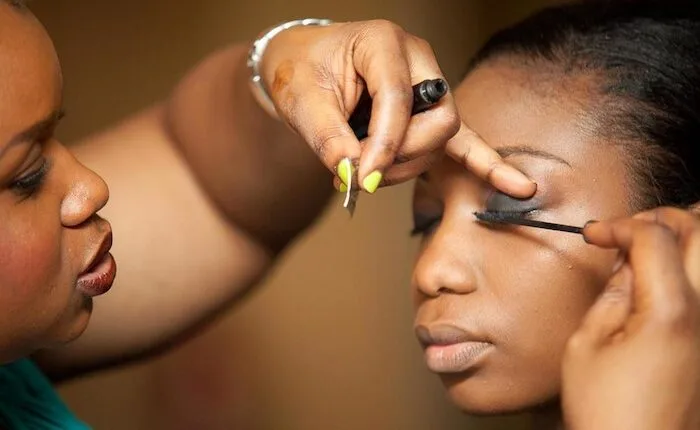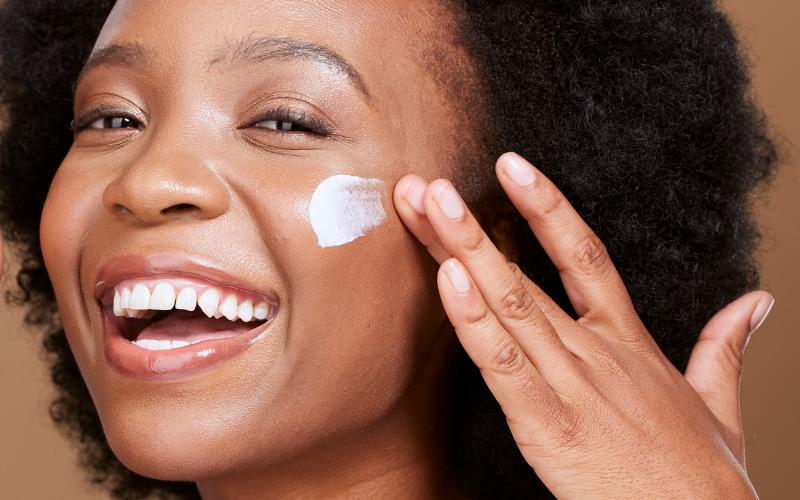
How Kenyan Beauty Brands Can Market Natural Product
Introduction
Kenya, a land of vibrant cultures and breathtaking biodiversity, is increasingly becoming a hub for natural beauty products. From the lush slopes of Mount Kenya to the arid landscapes of Turkana, the country is rich in natural resources like shea butter, aloe vera, moringa oil, and tea tree oil—ingredients that are gaining global recognition for their skin and hair benefits. Kenyan beauty brands have a unique opportunity to tap into this treasure trove and position themselves as leaders in the natural beauty industry. However, marketing natural products in a competitive market requires creativity, authenticity, and a deep understanding of consumer needs. In this article, we’ll explore actionable strategies that Kenyan beauty brands can use to effectively market their natural products, build trust with their audience, and stand out in both local and international markets.

Body1.Emphasize Authenticity and Cultural Heritage
One of the most powerful ways for Kenyan beauty brands to market their natural products is by highlighting the authenticity of their ingredients and tying their story to the country’s rich cultural heritage. Consumers today are drawn to products with a backstory—something that feels personal and rooted in tradition. For instance, brands can showcase how their shea butter is sourced from women cooperatives in rural Kenya or how their moringa oil is extracted using methods passed down through generations.
- Storytelling in Branding: Use packaging, social media, and websites to tell the story behind each product. Share images and videos of the farmers, landscapes, and processes involved in creating the product. For example, a short video of a Kenyan farmer harvesting aloe vera in the Rift Valley can create an emotional connection with consumers.
- Cultural Tie-Ins: Incorporate traditional Kenyan beauty rituals into marketing campaigns. Highlight how certain ingredients, like coconut oil, have been used for centuries by Kenyan women to nourish their hair and skin.

By weaving these cultural narratives into their branding, Kenyan beauty brands can differentiate themselves from mass-produced, synthetic alternatives and appeal to consumers seeking ethical and authentic products.
In today’s digital age, social media is a game-changer for marketing, especially for beauty brands. Platforms like Instagram, TikTok, and YouTube are visual mediums where Kenyan brands can showcase the beauty of their natural products and engage with a wide audience.
- Visual Content: Invest in high-quality photos and videos that highlight the texture, color, and natural essence of products. For example, a time-lapse video of moringa oil being applied to skin or hair can demonstrate its benefits in real-time.
- Influencer Partnerships: Collaborate with Kenyan beauty influencers, bloggers, and content creators who align with the brand’s values. These influencers can create tutorials, reviews, or “get ready with me” videos featuring the products. Micro-influencers, in particular, often have highly engaged local audiences and can be more cost-effective than mega-influencers.
- User-Generated Content: Encourage customers to share their experiences using the products by creating branded hashtags like #KenyaNaturalGlow or #PurelyKenyan. Repost these stories on the brand’s page to build a community around the products.
Social media also allows brands to interact directly with their audience, answer questions, and address concerns, fostering trust and loyalty.
Many consumers are still unaware of the advantages of natural beauty products over synthetic ones. Kenyan brands can take on the role of educators, informing their audience about why natural ingredients are better for their skin, hair, and the environment.
- Content Marketing: Create blog posts, infographics, and videos that explain the science behind natural ingredients. For instance, a blog post titled “Why Moringa Oil Is a Game-Changer for Dry Skin” can detail its moisturizing properties and antioxidant benefits.
- Workshops and Events: Host online or in-person workshops to teach consumers about natural skincare routines. Partner with spas or salons in Nairobi, Mombasa, or Kisumu to offer product demos or mini facials using the brand’s products.
- Transparency: Be open about sourcing and production processes. Include detailed ingredient lists and certifications (like organic or cruelty-free labels) on packaging and websites to reassure consumers of the product’s purity.
By positioning themselves as thought leaders in the natural beauty space, Kenyan brands can build credibility and attract a loyal customer base.

Sustainability is no longer a buzzword; it’s a movement. Consumers, especially millennials and Gen Z, are increasingly prioritizing eco-friendly and cruelty-free products. Kenyan beauty brands can capitalize on this trend by emphasizing their commitment to sustainability.
- Eco-Friendly Packaging: Use biodegradable or recyclable packaging materials, such as glass jars or bamboo containers, and market this as a key selling point. Highlight how the brand is reducing plastic waste in Kenya.
- Ethical Sourcing: Partner with local communities and ensure fair trade practices. For example, if a brand sources shea butter from women in northern Kenya, they can market the product as supporting livelihoods and empowering women.
- Green Campaigns: Launch initiatives like tree-planting drives or beach cleanups in partnership with customers. For every product sold, a brand could pledge to plant a tree in areas like the Mau Forest, resonating with eco-conscious buyers.
By aligning with environmental and social causes, Kenyan brands can appeal to a global audience that values ethical consumption.
While physical stores remain important, e-commerce is rapidly growing in Kenya, thanks to platforms like Jumia, Kilimall, and social media marketplaces. Kenyan beauty brands should invest in online sales channels to reach a broader audience.
- Online Stores: Set up user-friendly websites with secure payment options like M-Pesa, which is widely used in Kenya. Offer free or discounted shipping for bulk purchases to encourage sales.
- Marketplaces: List products on popular e-commerce platforms to gain visibility. Optimize product listings with clear descriptions, high-quality images, and customer reviews.
- Collaborations: Partner with local and international retailers, spas, and salons to stock products. Collaborating with Kenyan hotels and tourist shops can also attract international buyers looking for authentic Kenyan souvenirs.
Additionally, brands can explore exporting their products to markets in Europe, the US, and other African countries where demand for natural beauty products is high. Certifications like “Made in Kenya” can add value and authenticity to the products abroad.

Price sensitivity is a significant factor in the Kenyan market. While natural products can be more expensive to produce, brands must strike a balance between profitability and affordability to attract a wide range of customers.
- Tiered Pricing: Offer products in different sizes or bundles to cater to various budgets. For example, a small jar of shea butter for casual users and a larger tub for regular customers.
- Promotions: Run seasonal discounts, loyalty programs, or referral incentives to encourage repeat purchases. For instance, a “Buy One, Gift One” campaign during the holiday season can boost sales.
- Samples: Provide free samples with purchases or at events to let customers test the products before committing to a full-size purchase.
Affordable pricing, combined with perceived value, can make natural beauty products accessible to a larger audience in Kenya.
Conclusion
The global beauty industry is shifting toward natural, sustainable, and ethically sourced products, and Kenyan beauty brands are uniquely positioned to lead this charge. By embracing authenticity, leveraging digital platforms, educating consumers, prioritizing sustainability, expanding through e-commerce, and offering competitive pricing, these brands can carve out a significant space in the market. The journey to marketing natural products is not without challenges—competition is fierce, and consumer trust must be earned—but with creativity and a commitment to quality, Kenyan brands can shine on the world stage. As they harness the power of Kenya’s natural bounty and cultural richness, they’re not just selling beauty products; they’re sharing a piece of Kenya’s soul with the world. So, to all the Kenyan beauty entrepreneurs out there, it’s time to tell your story, connect with your audience, and let your natural products glow!